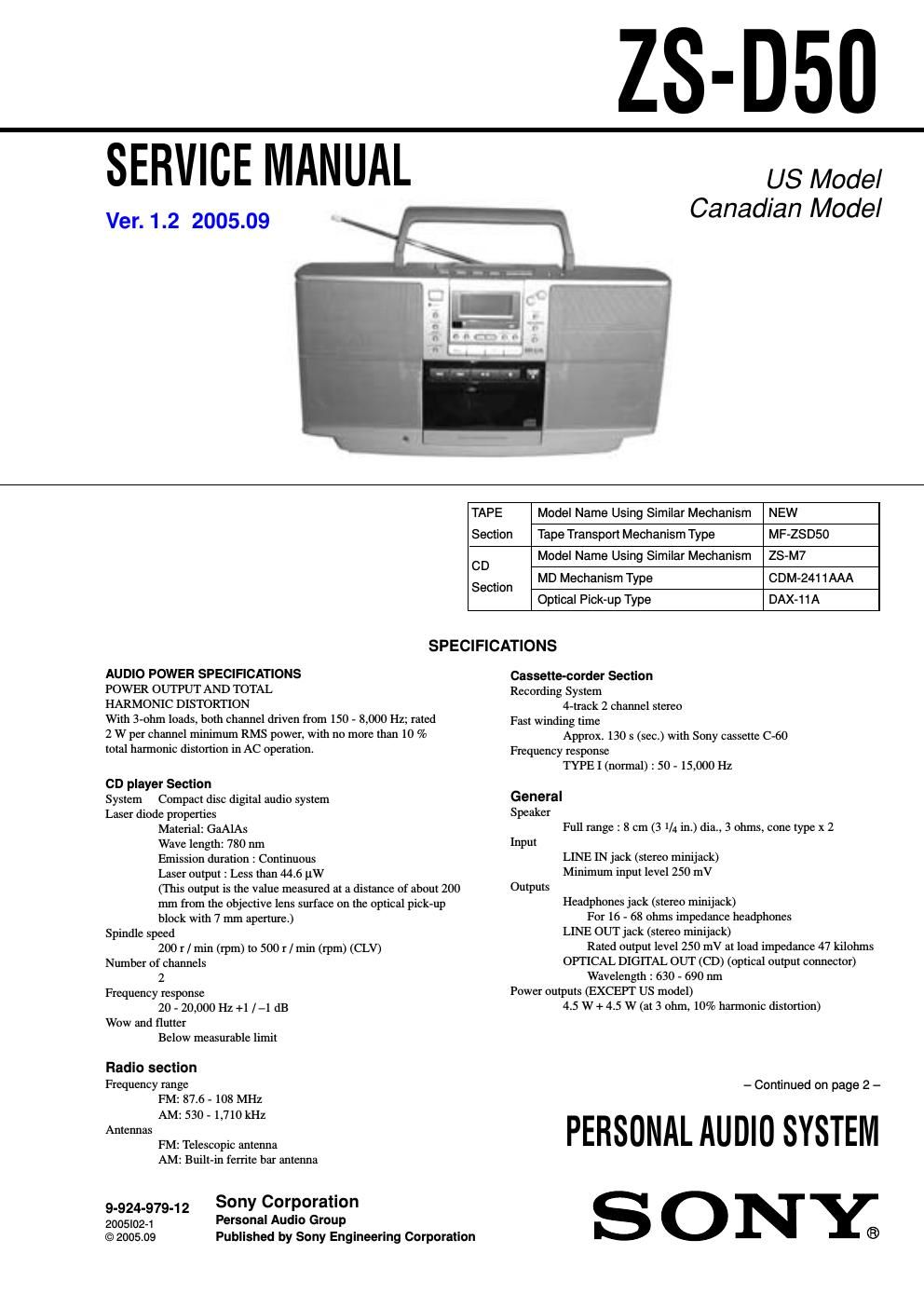Sony zs d 50 service manual
This is the 44 pages manual for sony zs d 50 service manual.
Read or download the pdf for free. If you want to contribute, please upload pdfs to audioservicemanuals.wetransfer.com.
Page: 1 / 44
